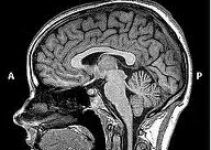One of the most critical surgeries performed on the human body is a brain or intracranial surgery. The entire treatment plan drains the patient physically, mentally and emotionally. It is generally the weakest and the most vulnerable phase of a patient’s life.
Table of Contents
Support
The most common course of treatment is an operative procedure followed by radiation therapy and chemotherapy sessions.
The swelling following the operation has repercussions on the functioning of the body. In addition, the effects of radiation and the nature of the drugs administered during chemotherapy have diverse impacts on the patient’s body.
The post-operative care for intracranial surgery is as crucial as the surgery itself.
Immediate Post-operative Nursing Care
1) Accurately observe vital and neurological symptoms
2) Administer eye drops in comatose patients
3) Maintain 30° elevation of the head portion of the patient’s bed
4) Monitor body temperature
5) Arrange for precautionary measures in case of seizures
6) Precisely record ingestion and output
7) Help the patient to cough and breathe deeply as recommended by the doctor
8) Perform motion exercises as advised by the doctor
9) Continuous communication with the patient
10) Periodic reorientation of the patient in terms of being, space and time.
Possible Impacts of Intracranial Surgery
The majority of the tumor or, if possible, the entire tumor is removed in the course of the surgery. Intracranial surgery might cause one or more of the following:
1) Epileptic seizures
2) Temporary or permanent visual defects
3) Hearing problems
4) Variations in cognitive abilities
5) Bouts of unconsciousness or slipping into a coma
6) Extreme fatigue
7) Partial or complete paralysis
8) Anomalies in bowel or urinary bladder functioning
9) Modifications in normal behavior
10) A lost sensation of space and time
Most of these problems occur due to inflammation in and around the brain due to the delicate surgery, and they disappear with time in the majority of the cases.
In some cases, these problems can last longer, depending on the damage caused by the tumor to the functional and healthy sections of the brain.
The Right Approach
Immense patience and extreme care are needed from family, friends, and relatives to enable the patient to emerge stronger than before the diagnosis.

Stay Strong
Several important facts need to be kept in mind while dealing with the patient’s condition post-operation.
1) Act Strong
The patient needs comfort and reassurance at all times post-surgery. Despite normal feelings of anxiety and fear, the caregivers should act strong and provide support with proper guidance and accurate information from the medical team. Never be ambiguous about any step you take, it’s always better to confirm than to guess.
2) Be Prepared and Gain Clarity on Facts
Post-operative care following an intracranial surgery might not end soon in some cases; it could last for months or even for years. The caregiver should be mentally prepared for this fact and not spend all their energy right at the beginning. Also, clarify with the doctor the nature of symptoms; those which are a natural part of the recuperation process and the ones which would signal an emergency.
3) Observe Regularity in Medication
One of the most crucial aspects of post-operative care is strict adherence to the medication regimen because deviating from it could lead to a setback or barrier to the success of the surgery.
4) Lifestyle and Diet Changes
Usually, post-operative care for intracranial surgery entails significant changes in the survivor’s daily living and dietary plan. Strictly follow the doctor’s instructions and teach family members to execute them in your absence.
5) Support Groups
Support groups act as a ray of hope for patients who undergo intracranial surgery, and for their families. Associating with such groups is an excellent way to learn and adopt tested measures to healthy living post-surgery.

6) Rehabilitation
Some individuals suffer a lasting impact such as aberrations in speech or weakness or numbness in limbs.
Though it is difficult to stay strong when the recovery period is lengthy, patients show considerable improvement with time due to continuous support and the efforts of speech therapists, rehabilitation specialists, and physiotherapists.
Gradually the patient’s confidence level increases as they approach the level of fitness they had before diagnosis.
7) Accompany The Patient
Family members should make it a point to accompany the patient to their regular visits to the doctor, periodic MRI, and CT scans and rehabilitation treatment sessions.
This gives the patient a sense of security, boosts their spirits and alleviates the possibility of depression.

8) Cheer Them Up
The best way to make sure that the patient recovers as quickly as possible is by adding cheer to their routine in various ways.
Read humorous articles to them or talk about positive things happening in life with you or other people you know.
Encourage them to stroll in the fresh air, or take them out in a wheelchair if necessary. Play music that elevates their mood or view positive movies.
Help them to see people who positively impacted their lives in the past. Being positive will definitely speed up their recovery.
Medical experts say that emerging hale and hearty from an illness requires being positive and confident, along with the medication and treatment plan.
Support Groups:
- (UK) https://www.braintumourresearch.org/info-support/support/support-groups
- (USA) https://www.abta.org/about-brain-tumors-2/social-emotional-support/find-a-support-group/
- (Australia) https://www.btaa.org.au/resources/support-organisations
- (Canada) https://www.braintumour.ca/category/support-group/
- (For All Others) https://theibta.org/brain-tumour-support-advocacy-and-information-organisations/





